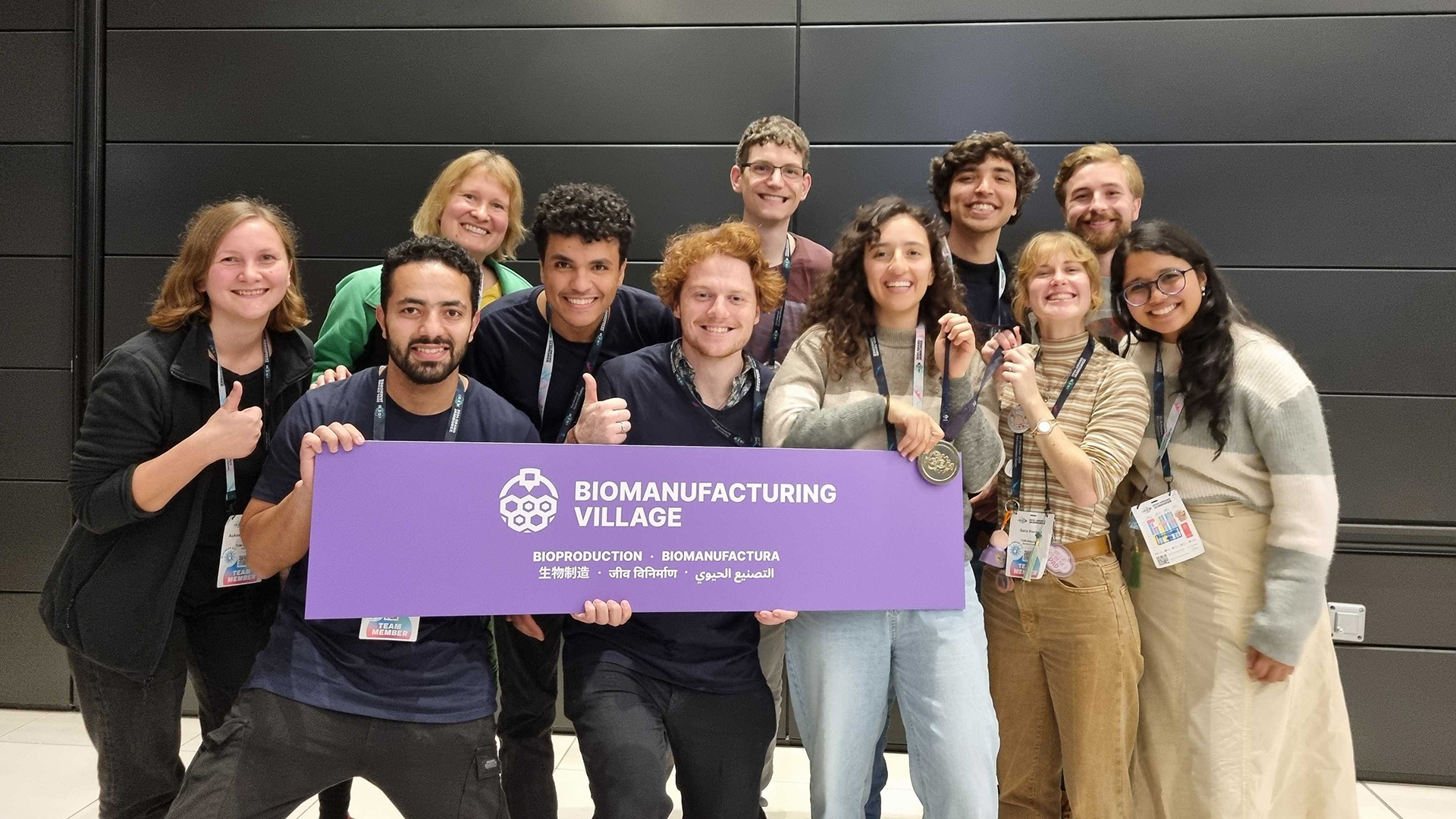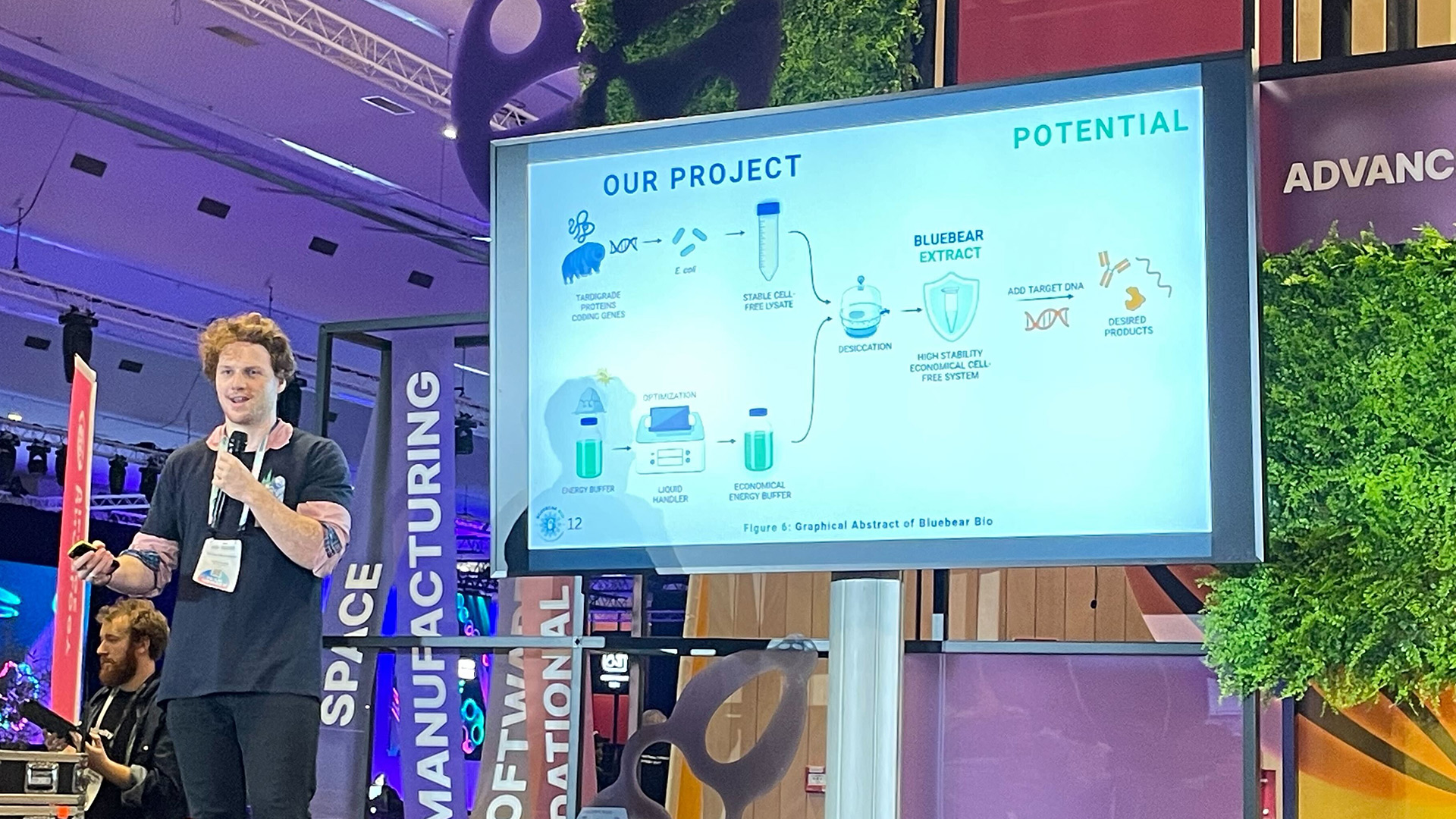Proteins are versatile molecules that do the work in our cells and are used for many practical applications. The sequence of proteins determines which functions they are useful for and is stored in the genetic information on DNA. With the help of isolated DNA and the protein biosynthesis machinery from cells, researchers can also synthesise proteins in the test tube in a short space of time. This technology could be used to demonstrate the basics of biology to schoolchildren, to analyse water samples for pollutants, to diagnose diseases and to produce medicines in remote regions. However, there is one problem with this vision: the reagents needed for this are very expensive and have to be stored and transported at ultra-low temperatures of around -70°C.
In order to increase the stability of these versatile and valuable reagents, the Straubing team of twelve students from different degree programmes drew inspiration from nature. Chemical Biotechnology student Marten Meckelburg explains: ‘Tardigrades, also known as water bears, are tiny, eight-legged animals that can be found in many damp habitats, for example in moss cushions. They were so interesting to us because they can survive the most extreme environmental conditions, such as complete desiccation. The tardigrades owe their resilience to a special class of proteins that protect the sensitive components of their cells. We are now using the proteins of the tardigrades to stabilise valuable laboratory reagents.’ Using a sophisticated computer model in combination with high-throughput experiments, the team also succeeded in reducing the cost of the required ingredients to a tenth.
‘Months of intensive work have paid off’
‘We are very proud of our project because we were not only successful in the lab,’ says Sara Hanson, a bioeconomy student. ‘We were able to improve everyone's access to this innovative technology. The stabilised reagents can now be transported and stored in a dried state at normal temperatures. We have therefore already been able to share our reagents with students in other countries and have demonstrated their function at several universities in Straubing and Regensburg."
The students were supervised by Prof Dr Henrike Niederholtmeyer and her team. The Professor of Synthetic Biology is delighted with the students: ‘It's a really great achievement and shows the commitment of our students to carrying out creative research independently. Months of intensive work have paid off. I am all the more pleased because the project promotes sustainable development and the participation of all countries in innovative technologies."
From 22 to 26 October, the final presentations took place at the ‘Grand Jamboree’ in Paris and the best projects were honoured. In comparison with 400 teams from universities and schools from all over the world, the team from Straubing was placed in the top 10 of the best universities in the ‘Overgrad’ category, won a gold medal for excellence in synthetic biology and was also honoured with two nominations for the best project in bioproduction and best wiki. The Straubing students were supported by the association Hochschulstadt Staubing e.V., the TUM Campus Straubing and many other sponsors.

